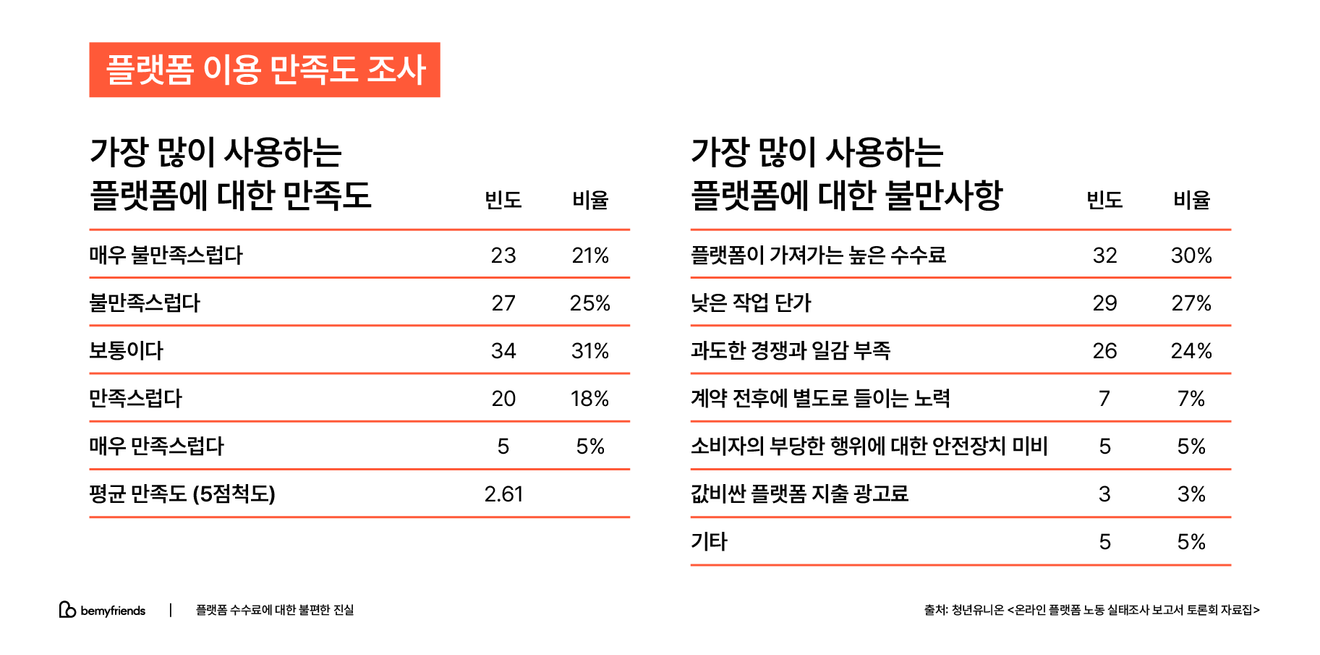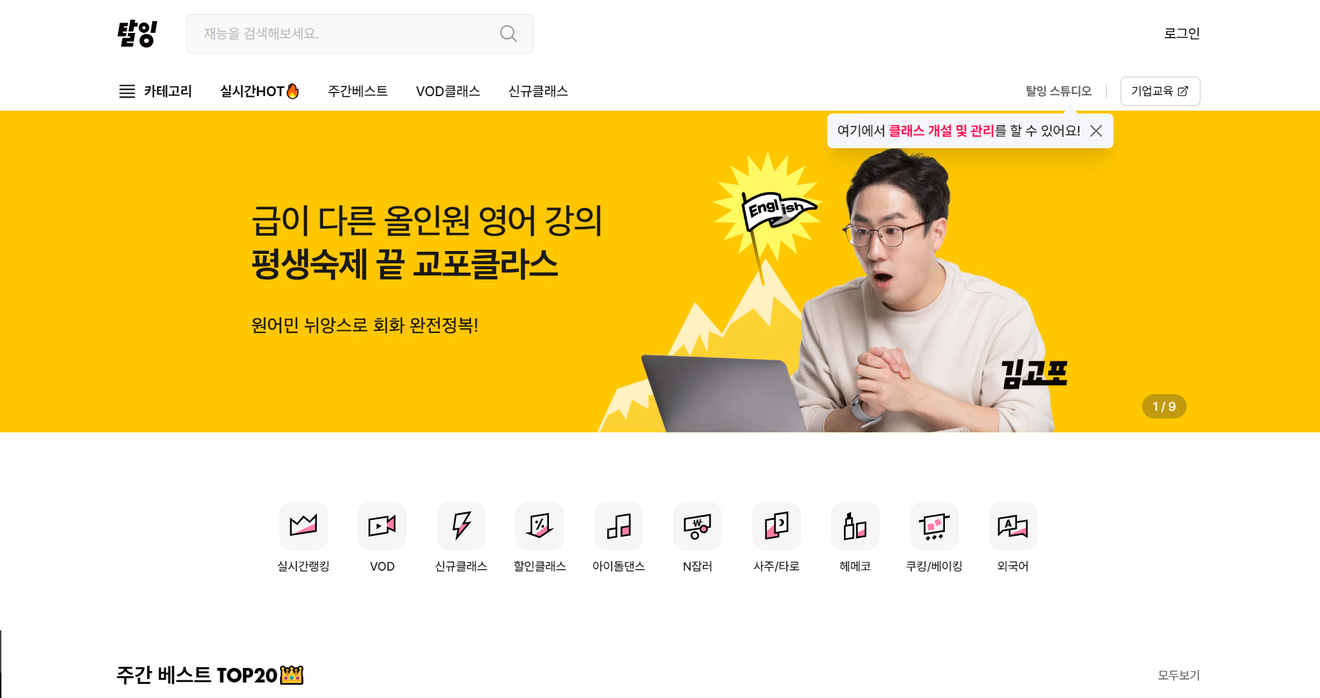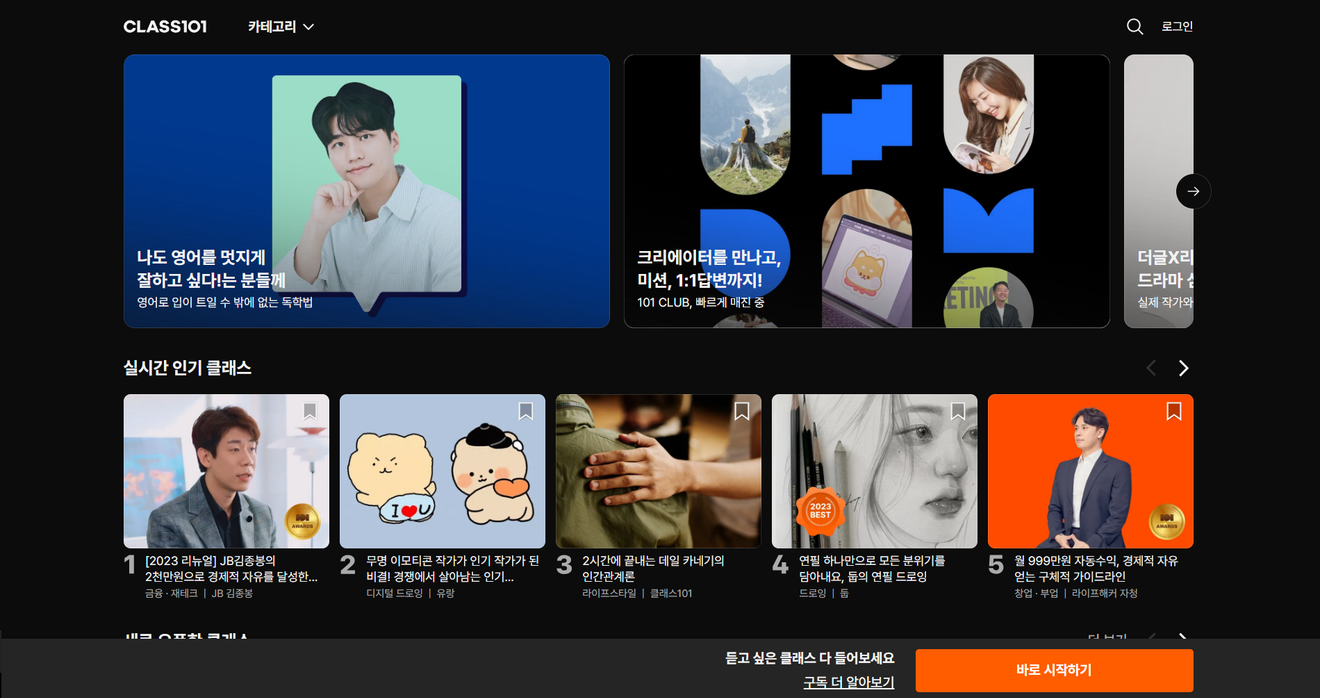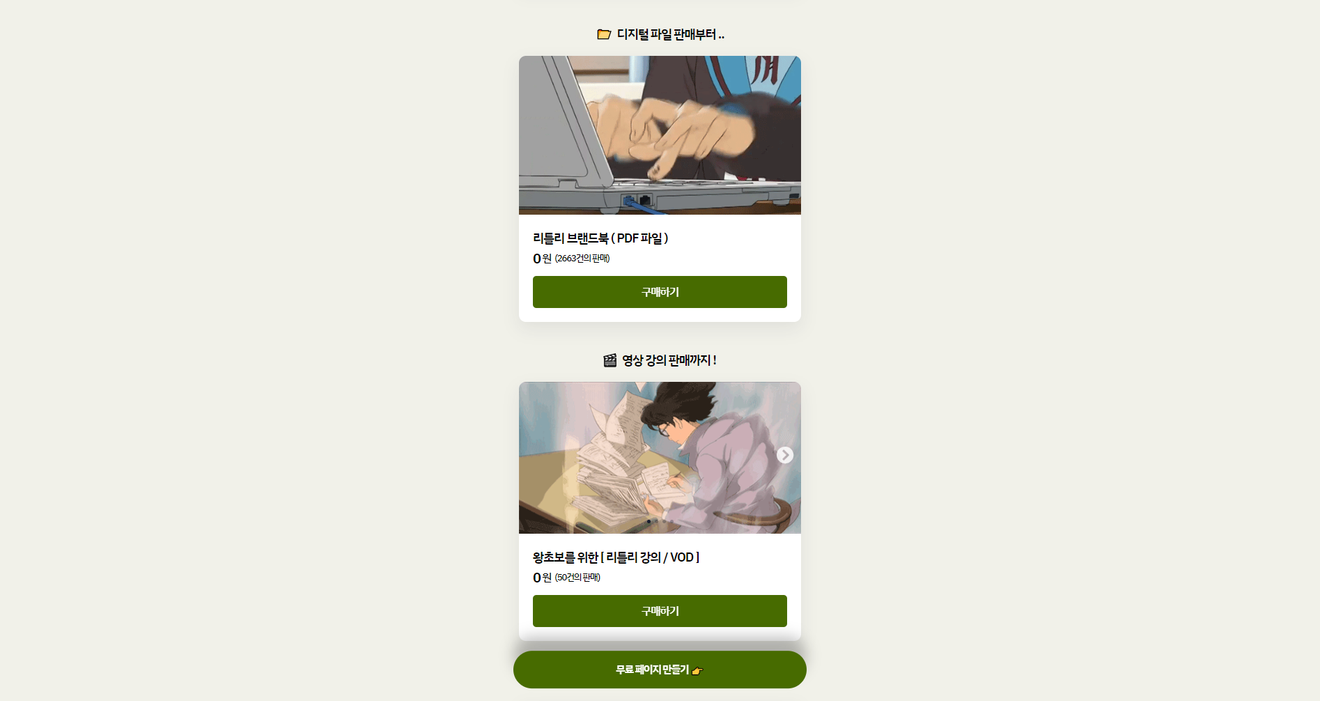- 올인원 프로필링크, 리틀리
- 세상 쉽고 깔끔한 페이지 만들기 리틀리
In recent years, the educational landscape has been continuously shifting towards online and digital environments. The pandemic further accelerated this transformation. In line with these changes, freelancers and creators are generating new income streams through online courses. Online courses offer the advantage of continuous sales once created, allowing for consistent revenue without requiring significant additional effort.
The platforms that serve as the primary revenue source for creators through course sales each have their own unique characteristics. Among them, Littly, a platform gaining traction among creators due to its low sales commission (up to 5%, plus 2% for PG companies), has recently become prominent. It recently introduced the ability to sell online courses through an update. In this article, we will explore Littly's distinctive advantages compared to other platforms and how creators can leverage it to effectively market their courses and boost their earnings.
Limitations of Existing Online Class (Course) Sales Platforms
Despite the convenience and high recognition offered by existing course sales platforms, these platforms have certain limitations. Firstly, they impose high commissions on sellers. Even though you put in the hard work to plan and create your course, using these platforms means giving up a significant portion of your profits to them.
Furthermore, these sites impose rather strict rules regarding course structure and pricing. For instance, even if a seller wishes to set a specific price for their course, they may find it difficult to adjust the price freely due to platform policies. These restrictions limit the maximum revenue that can be generated from the course, leading to growing user dissatisfaction in this area.

Sales Platform Satisfaction Survey Results: Dissatisfaction with high sales fees ranked highest.
Additionally, the limitation of individuality and creativity is another concern. Most traditional learning sites impose stringent standards on the format and content of courses, making it challenging to develop unique and personalized course content.
While the broad learner base and high recognition offered by traditional learning-specific sites are undoubtedly major advantages, they also impose significant restrictions on course creators' monetization capabilities due to high commissions, stringent guidelines, and limitations on pricing. These drawbacks are contributing to the growing popularity of platforms like Littly, which embraces individuality in course content and offers lower commission options.
So, Is Littly Better Than Other Platforms in Terms of Revenue Generation?
So, Littlyoffers several advantages over other platforms when it comes to selling your courses. Let's explore some key features.
Creating Courses Is Incredibly Simple
Creators can freely plan and develop their courses without complex restrictions on class numbers or rigid formatting requirements. This empowers creators to fully leverage their ideas and knowledge, fostering the creation of more engaging and diverse course content.
Robust Content Security Features
Creators can set course durations and utilize features that prevent unauthorized file downloads and sharing, ensuring meticulous management of content security. This thoughtful approach helps safeguard creators' course and sales content.
Low Sales Commission
Littly boasts the lowest sales commission among domestic course sales platforms. (Littly's commission for selling courses, ebooks, and other talent-related content ranges from 2% to 5%, plus a 2.9% PG company processing fee, with VAT charged separately). This significantly reduces the commission burden on creators in the market, allowing them to retain a larger share of their earnings from course sales, unlike traditional platforms where a considerable portion went to the platform itself.
For these reasons, Littly has become an attractive option for creators looking to sell their courses. From easy course creation to rigorous copyright protection and a reasonable commission structure, Littly provides everything creators need to monetize their knowledge effectively.
Comparing Online Course Sales Commissions Across Different Platforms
Platforms like Talin, Class 101, and Kmong offer various course sales platforms, but their base commission rates typically range from 15% to 20% or higher. Within this range, the commission can vary further depending on whether the content is self-produced or if platform editing services are used. Let's take a closer look.
Talin

Talin offers a variety of educational and hobby classes, but its commissions consume a significant portion of creators' revenue. One-day classes (online and offline) are subject to a 15% commission, multi-session classes (online and offline) are 14%, and ebook and video courses are 20%. If creators utilize services provided by Talin, such as editing, additional commissions are levied. Value-added tax and a 3.3% income tax are withheld before payment is disbursed.
Class 101

Class 101 previously adopted a policy of taking 50% to 80% of the sales revenue per course, but after transitioning to a subscription-based revenue model, users can access unlimited services for a monthly fee of 20,000 won. Creators receive payment based on the playback time of their courses. (*Similar to YouTube revenue settlement*)
Littly

All products sold on Littly (courses, ebooks, audio files, etc.) are subject to a consistent commission rate ranging from 2% to 5%, plus a 2.9% PG company processing fee. This represents a highly competitive proposition compared to other platforms in the market. Notably, the commission structure is tiered based on accumulated earnings, decreasing as earnings grow (5% for accumulated earnings up to 1 million won, 4% for over 1 million won, 3% for over 10 million won, and 2% for over 1 billion won), which offers creators a long-term advantage. This low commission structure on Littly maximizes the net profit earned by course creators from sales.
Furthermore, Littly provides various mobile web builder features that enhance users' social media profiles, significantly contributing to creators' personal branding and marketing efforts. The platform is free to start, and creators can construct sales pages freely without requiring additional approvals or restrictions, making it another key strength of Littly.
In Conclusion
Selling online courses on any platform goes beyond mere revenue generation; it presents creators with an opportunity to disseminate their knowledge and experiences widely. It can also significantly impact personal branding. Littly, as a mobile web builder with low commissions and e-commerce and monetization features tailored for creators, is a very appealing platform for course creators looking to maximize their earnings. It offers creators the flexibility and tools they need to market and sell their content effectively, going beyond the limitations of traditional online learning platforms.
Therefore, Littly is an ideal choice not only for creators who solely focus on selling online course content but also for all creators who aim to develop their brand and generate sustainable revenue. Share your creative course content with a wider audience, sell it through Littly, and generate income.

Comments0